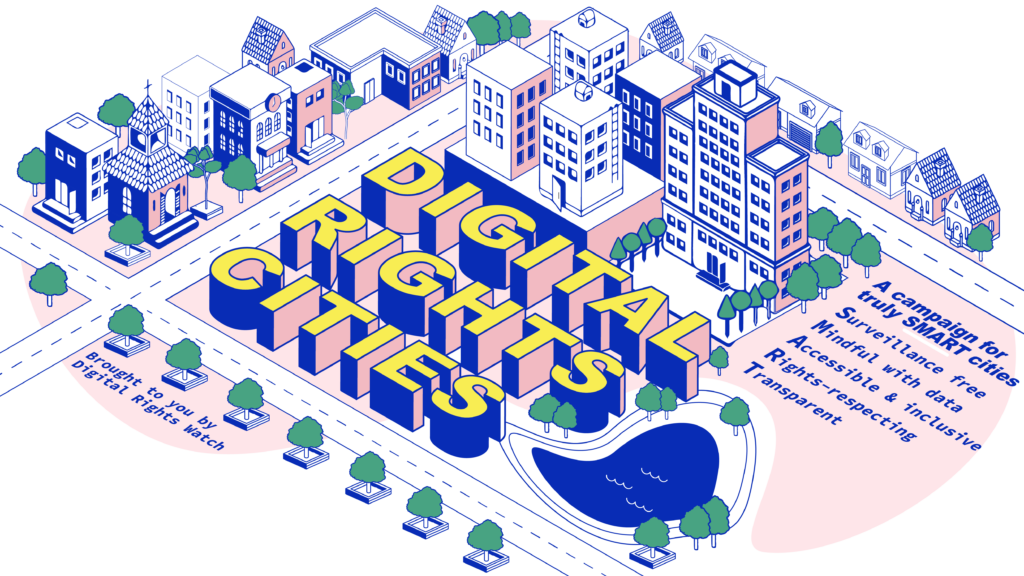A note from the Digital Rights Watch Chair-
Greetings from the end of one hell of a year! We hope that you and your loved ones are safe during these tumultuous times. At Digital Rights Watch, it’s been a period of significant change and progress.
We’ve hired our first proper staff members, which has allowed us to do more work than ever, and this change could not have come at a better time. We’ve raised our voice about the problems with the Covidsafe app, we have filed submissions on privacy, data retention, the proposed media code and the UN Periodic Review. We’ve had many meetings on zoom and quite a few meetings to talk about the problems with the business model of platforms like zoom.
In short, the pandemic has meant that our dependence on the web has never been more apparent, and our role as advocates for freedom and fundamental rights online has never felt more urgent. We’re really proud of what we’ve achieved this year, and we are grateful, as always, for the support from members like you. Supporters of our work allow us to speak loudly to those in power, from both industry and government, so thanks for taking the time to be one.
We are looking forward to a brighter 2021, a year in which we have big plans to make the web a more joyful (and rights-respecting) place to be.
– Lizzie O’Shea, Chair of Digital Rights Watch

The long awaited review of The Privacy Act!
In September this year, the ACCC released the results of their Digital Platforms Inquiry and emphasised the need for privacy and data protection to protect consumers. We couldn’t agree more! Well, we’re in luck, the Attorney-General has announced a review of the Privacy Act.
This is a great opportunity to shake up Australia’s relationship with privacy! Updating the Privacy Act can give Australians the ability to control how their information is used and shared, and empower them to take action when their privacy or personal information is violated. At the moment, internationally, we are falling behind in addressing the privacy (but also broader societal and economic) harms caused by the business models of digital platforms and services, public and private alike. It’s time for the government to ensure meaningful protections and actionable rights for individuals!
You can head to our website to learn more about why we think it’s key to build a rights-based, as opposed to the existing value-based, relationship with privacy. In our submission to the review, we also emphasised the need for federal-level recognition of the right to privacy.
QR Codes everywhere
As you’ve likely seen, venues around Australia are required to collect visitor information in order to assist government contact tracing in case of a coronavirus outbreak. Many are already using QR codes to facilitate this process, and they are now mandatory in NSW and will be in Victoria. You may also have read in the news about how QR codes make life easier for cafe owners (yay) or how they can feed data into marketing companies (boo).
But there’s actually quite a lot more complexity to QR codes than what is being covered in many public discussions, so we’ve put together a short piece to explain some of the privacy and security issues we should all be aware of as QR codes become part of “Covid Normal.”
We think that normalising the use of QR codes without also educating the public about the risks, we’re unwittingly teaching people to trust the tech without fully understanding it. Our team has been raising awareness about this complex issue and how it impacts privacy with our Programme Director, Lucie Krahulcova, on ABC’s Radio National, and Campaigns Officer, Sam Floreani, on ABC news, aaaaand in this article.
Digital Identity is a human rights issue
The Digital Transformation Agency has kicked off a public consultation on proposed laws for the government’s digital identity platform. We want to emphasise that digital identity is a human rights issue! The potential benefits of a robust and secure identity system are real, but we need our government to put our rights ahead of the private sector, and ensure that people are not forced to trade their rights for convenience as part of a digitisation initiative. You can find more information on our Twitter and Instagram. Submissions are due on the 18th of December.

What Digital Rights Watch has been up to this month…
- As promised, we made a submission on the Data Availability and Transparency Bill. The draft stands to drastically change the way personal information can be shared across Australia’s government services. There’s a short overview and a link to the full submission available on our site.
- It’s submission season! We’ve also made a submission on the first step in the review of the Privacy Act. Read our latest analysis on why we think it should shake up the way we view privacy in Australia!
- The Joint Parliamentary Commission on Intelligence and Security (PJCIS) finished their review of the mandatory metadata retention scheme and spelled out 22 recommendations for the government to consider. Head over to our website for a breakdown of what it means for our rights.
- Less reading, more audio? Tune in to hear Lucie speak about the most recent Mac OS launch and why it rang privacy alarm bells on last week’s Byte into IT episode on 333R.
- To keep up to date on all-things QR codes, privacy and security, check out our overview of the privacy risks associated with that type of data collection. Or if you’d prefer to listen instead of read, you can hear Lucie dig into it on Radio National together with Professor Graham Greenleaf.
- If you’re interested in how the US election impacts big tech regulation (and inherently impacts all of us), check out this article Lizzie O’Shea wrote for The Baffler.
- Lizzie continued her regular spot on the Australia at Home fortnightly Tech Talk. The 13 November episode covers the Privacy Act and you can hear from Lucie about European data protection. The 27 November episode covered the Media Bargaining Code and workplace surveillance (eek!).
- And register now for the 11 December special episode with Human Rights Commissioner, Edward Santow! A year in review.

As we wind up 2020, there are three key ways to get involved with our work:
- Get in touch with your local council to ask them to uphold human rights in their digital initiatives and smart cities plans as part of our Digital Rights Cities Campaign.
- Add your voice to our call to Ban Mass Surveillance Facial Recognition. We have big things planned for this work in 2021, so why not get involved now!
- And of course, you can donate to Digital Rights Watch or become a member to support our ongoing work to uphold human rights in the digital age.


There’s no denying that *a lot* has happened over 2020 in the digital rights space. We’re excited to announce that in January we will be launching our 2020 State of Digital Rights Report.
If you’re a long term supporter, you may remember that we published our first State of Digital Rights Report in 2018, which explored a range of issues such as metadata retention, consumer rights, the fight to protect encryption and children’s rights in the digital age. This year, we’ve been working with a fantastic mix of activists, writers, and critical thinkers to contribute to the report, which highlights the many ways Australians’ rights are being impacted by the activities of private companies and governments in the online world. Stay tuned!

As the holidays are approaching, you might be looking to indulge in a bit of shopping (for yourself or others, no shame!). If you’re considering a tech gift this year, make sure you’re not accidently giving away privacy at the same time.
We’ve put together this piece on (in our opinion) some of the best and worst tech gifts of 2020, to help you make the best choices for your loved ones (unless they have “dystopian hellscape” on their wishlist this year). You can also check out this article by our founding Chair from last year which highlights many issues that still hold true.
Step aside Surveillance Santa, we’re not interested in you seeing us while we’re sleeping nor knowing when we’re awake. Creepy.
Make sure you follow us on Twitter and/or Instagram so you can take part in our digital rights advent calendar! 1…2…3…
See you in January!
